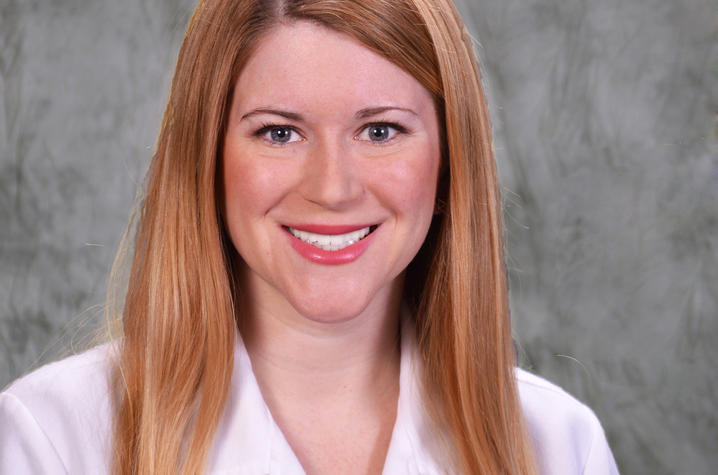Celebrate Better Hearing and Speech Month this May

LEXINGTON, Ky. (May 8, 2017) - Each year during the month of May, speech-language pathologists and audiologists raise awareness about people with communication disorders and ways to improve their quality of life. This includes people with a variety of communication challenges, which can affect speech, language, voice, hearing, problem solving and other communicative functions. Communication may seem automatic, but for people with communication disorders, it can require extra assistance and hard work.
You may already be familiar with one condition that can result in a communication disorder: Parkinson’s disease. The Parkinson’s Disease Foundation estimates that one million Americans are currently affected by Parkinson’s disease. Parkinson’s disease is a disorder of the brain that causes damage to specific nerve cells. This results in tremors, muscle weakness, stiff muscles, balance problems, and difficulty walking. Parkinson’s disease is a progressive illness, meaning these impairments worsen as the disease advances.
Throughout the course of the illness, Parkinson’s disease can negatively affect a person’s speech. For these patients, this impact can include a low speaking volume (hypophonia), hoarseness, monotone voice quality, and unclear words (imprecise articulation). Patients also have difficulty coordinating their breathing and speaking. These changes can interfere with effective communication. Imagine if others asked you to repeat yourself in a conversation, could not hear you on the phone, or described your voice as monotone. Furthermore, imagine you are unable to monitor your own loudness. You would probably feel very frustrated trying to communicate. These are common problems for patients with Parkinson’s disease, making it difficult for them to improve their speech without assistance.
Fortunately, there are treatments that can help. One such treatment is called Lee Silverman Voice Therapy: LSVT LOUD. This program utilizes loud speech tasks to strengthen motor systems used for speech, with the goal of improving a patient’s ability to communicate. It follows a series of exercises that emphasize “thinking loud” by using healthy vocal loudness, not shouting or yelling. Research shows that it helps patients speak more loudly, with more natural intonation, and with a clearer voice. This program helps patients improve their awareness of their volume by stimulating the sensory and motor systems. With louder and clearer speech, patients often become more confident in their communication. This improves quality of life for the patient and the people they communicate with.
LSVT LOUD therapy is specially designed for use with patients with Parkinson’s disease and has been studied by researchers for over 20 years. Treatment is intensive and involves four sessions per week for four weeks; this is required for the brain to develop a better process for louder speech. Patients who are interested in improving their Parkinson’s-related speech changes will need an evaluation with an otolaryngologist (ear, nose, and throat doctor) to assess the voice box (larynx), as well as an evaluation with a speech-language pathologist who specializes in voice disorders. If LSVT LOUD therapy is recommended, patients should look for speech-language pathologists with an LSVT LOUD certification, as there is specific training that clinicians must complete before utilizing this program.
Elizabeth Campbell, MA, CCC-SLP is a speech-language pathologist at the University of Kentucky Voice & Swallow Clinic.




